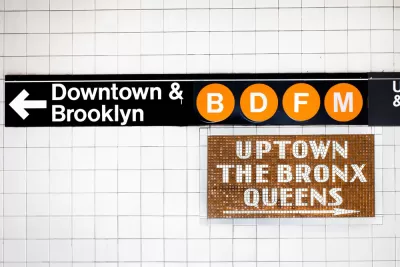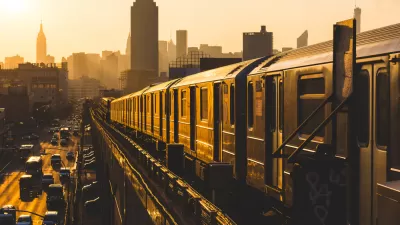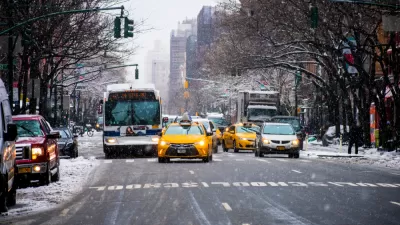There are some very large contingencies still left to resolve (like funding from the federal government) but revenues generated from congestion pricing are allowing for new levels of transit infrastructure spending.

"The Metropolitan Transportation Authority hopes to commit $51 billion over the next five years to the resurrection of the region’s mass transit system," reports Dan Rubinstein.
The newly announced 2020-2024 MTA Capital Program is a game changer, significantly increasing the dollar figure on the agency's current capital investment plan. The money would be spent on improving accessibility to 66 subway stations, resignaling portions of six subway lines, new buses (including 500 all-electric buses), and the second phase of the Second Avenue Subway.
"While the program relies on funding from the congestion pricing scheme set to go into effect in 2021, as well as excess revenue from the MTA’s bridges and tunnels, it — crucially — also relies on nearly $11 billion in funding from the Trump administration, $3 billion from the de Blasio administration, and $3 billion from the state. The governor is on board. It’s not clear where the de Blasio and Trump administrations stand."
More details of the new plan are available in a press release from the New York MTA, published on September 16, 2019, and a New York Times article by Emma G. Fitzsimmons.
FULL STORY: The MTA's resurrection plan: $51B and a subway up to 125th Street

Maui's Vacation Rental Debate Turns Ugly
Verbal attacks, misinformation campaigns and fistfights plague a high-stakes debate to convert thousands of vacation rentals into long-term housing.

Planetizen Federal Action Tracker
A weekly monitor of how Trump’s orders and actions are impacting planners and planning in America.

In Urban Planning, AI Prompting Could be the New Design Thinking
Creativity has long been key to great urban design. What if we see AI as our new creative partner?

King County Supportive Housing Program Offers Hope for Unhoused Residents
The county is taking a ‘Housing First’ approach that prioritizes getting people into housing, then offering wraparound supportive services.

Researchers Use AI to Get Clearer Picture of US Housing
Analysts are using artificial intelligence to supercharge their research by allowing them to comb through data faster. Though these AI tools can be error prone, they save time and housing researchers are optimistic about the future.

Making Shared Micromobility More Inclusive
Cities and shared mobility system operators can do more to include people with disabilities in planning and operations, per a new report.
Urban Design for Planners 1: Software Tools
This six-course series explores essential urban design concepts using open source software and equips planners with the tools they need to participate fully in the urban design process.
Planning for Universal Design
Learn the tools for implementing Universal Design in planning regulations.
planning NEXT
Appalachian Highlands Housing Partners
Mpact (founded as Rail~Volution)
City of Camden Redevelopment Agency
City of Astoria
City of Portland
City of Laramie





























